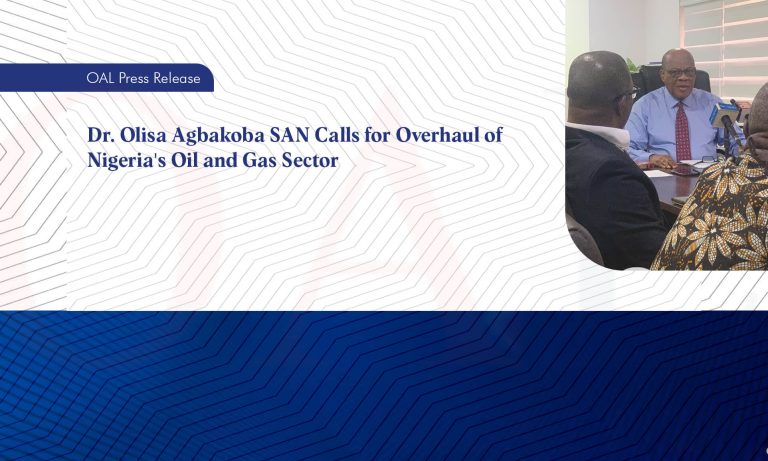
The Importance of Good Corporate Governance in Nigeria

The Evolution of Corporate Governance in Nigeria.
The Nigerian corporate sector has undergone different phases in its effort to develop and redefine the corporate landscape so as to inculcate good corporate governance in Nigeria. In 2003, the Code of Best Practices on Corporate Governance in Nigeria (the 2003 SEC Code) issued by the Securities and Exchange Commission, was the first corporate governance code to be issued by any regulator in Nigeria, and its application was extended to all public companies registered in Nigeria.
In 2011, the SEC issued the Code of Corporate Governance in Nigeria 2011 (the 2011 SEC Code) to address the weaknesses of the 2003 SEC Code, and to improve the mechanism for its enforceability. In furtherance of the powers under the Financial Reporting Council of Nigeria (FRCN) Act that the FRCN issued the three-tiered National Code of Corporate Governance in 2016.
Most recently, the FRCN issued the Nigerian Code of Corporate Governance (NCCG) in 2018, replacing all existing sectoral codes of corporate governance in the country, and is currently applicable to all sectors of the economy.
The intention presumably behind these iterations is to stay in line with global best practice where corporate governance is concerned.
What is Corporate Governance as a Concept?
According to the Oxford University Press, Business English Dictionary ‘Corporate Governance’ is defined as the way in which directors and managers control a company and make decisions, especially decisions that have an important effect on the shareholders.
The term corporate governance first appeared as a business concept in 1976, in the US Federal Register . In 1976, the term “corporate, parks and commercial real estate. but it was not until nearly 25 years later in the wake of major corporate failings and scandals such as Enron, Satyam, Cadbury, Arthur Andersen which revealed just how significant corporate governance is for business.
The fallout demonstrated that bad governance, which can manifest in several ways e.g. poor monitoring and oversight, lackadaisical corporate culture, widespread unethical business practices, lack of integrity at leadership level, etc. can be disastrous for any business regardless of how long or well established, thereby disproving the term ‘ too big to fail’.
Model Theory and Application of Good Corporate Governance
‘Good Governance’ can be considered to be a systemic approach to managing and supervising organisations properly which can positively impact their sustainability and profitability.
Good corporate governance, being the opposite of ‘bad governance’ is concerned with proper running management and supervision of a company by the board. A practical example of good governance is conducting regular board meetings, audits etc.
Theoretically, corporate governance, concerns itself with people, competencies (performance), processes and policies. These are known collectively as the 4 P’s of corporate governance.
Holistic approach to Good Corporate Governance in Nigeria
A holistic approach to governance is the most effective way to achieve good corporate governance to avoid it becoming a tickbox exercise. It requires looking at the organisation from a 360 degree perspective , from the implementation of robust policies and procedures, hiring the right people with the relevant skills and competencies, implementing the right systems e.g regulatory technology to make reporting and supervision more effective, etc.
The four P’s when combined, create a conducive working culture and environment in which organisations and companies can thrive from day one. Even for early stage companies and startups, it is never too soon to begin to implement good governance.
For instance, if a board fails to meet regularly, this could consequently lead to inadequate supervision of the operations of the organisation, making it more likely that corporate failings will arise and go unnoticed. Moreover, an absence of policies and procedures to catch and report operational breaches or bad conduct e.g. whistleblowing, escalation, etc. could lead to higher probability of corporate failure.
The responsibility for implementing good governance ultimately rests with the Executive Management or in the case of smaller companies , the business owner or founder. This is where the ‘tone from the top’ expression comes from. For good governance to become embedded into the culture of an organisation, it has to be championed by topline management. Where the Executive Management, Board and Chairman or founder as the case maybe fail to take responsibility for establishing good governance, it becomes more likely that the organisation will be poorly governed and run into issues.
Benefits of Good Corporate Governance
According to a report written by the OECD, it indicated that organisations which invest more resources in Good Corporate governance practices, systems and policies ‘produce substantially better market results, can help companies weather the storm of an economic downturn’.
Additionally, good corporate governance has been found to improve the top level decision making process, create better control environments and reduce wastage.
The implementation and practice of good governance could be said to enhance the value proposition of organisations because companies which take governance and due process more seriously tend to be less likely to run into trouble . In practice, this translates to greater financial management and supervision, and incidents such as internal corruption, financial leakages, ‘cooking the books’ etc, become less of an occurrence.
Companies and organisations which continually invest in strengthening its corporate governance mechanisms could, by doing so, increase stakeholder confidence in the process, which can reflect positively on the balance sheet in the long term.
When there is commitment to good corporate governance in an industry, it can have a positive knock on effect on the market collectively which helps with market confidence and encourages stable, long-term international investment flows into the country.
In Conclusion
It is evident that there is a cost of good governance because it requires investing in competent and skilled people, processes and policies however notwithstanding in the long run it is still a worthwhile investment.
Building companies and organisations is a form of economic and social activity that should be done with a long term view and so it is important to remind all companies and stakeholders that, no matter how small or large a company may be, we must never take corporate governance for granted. Invest in good corporate governance not just for profitability but also for sustainability.
Written By:
Beverley Agbakoba-Onyejianya
Beverley is an Associate Partner and the Head of Sports, Entertainment & Technology (SET) group at OAL. She is a regulatory and compliance professional and a lawyer with over fourteen years professional experience in the banking and capital markets sectors…
Author




